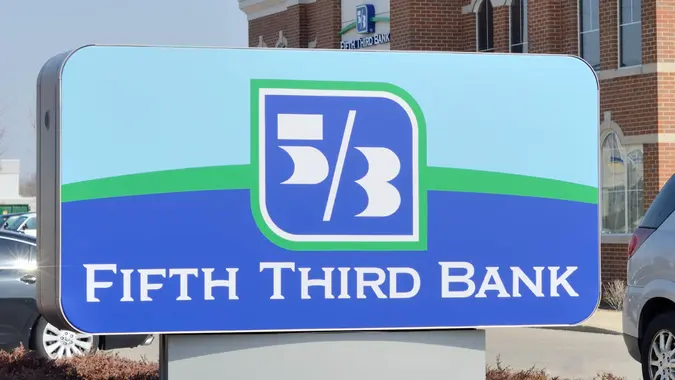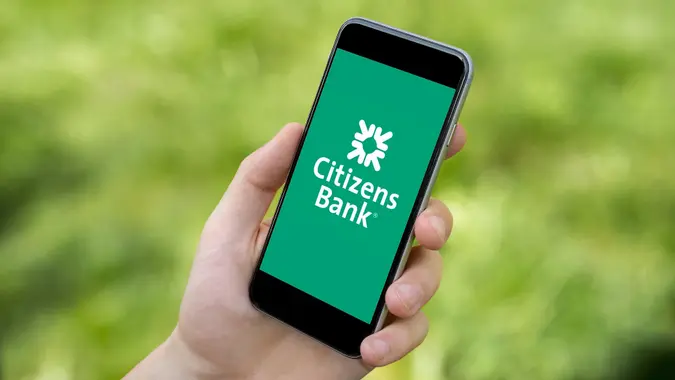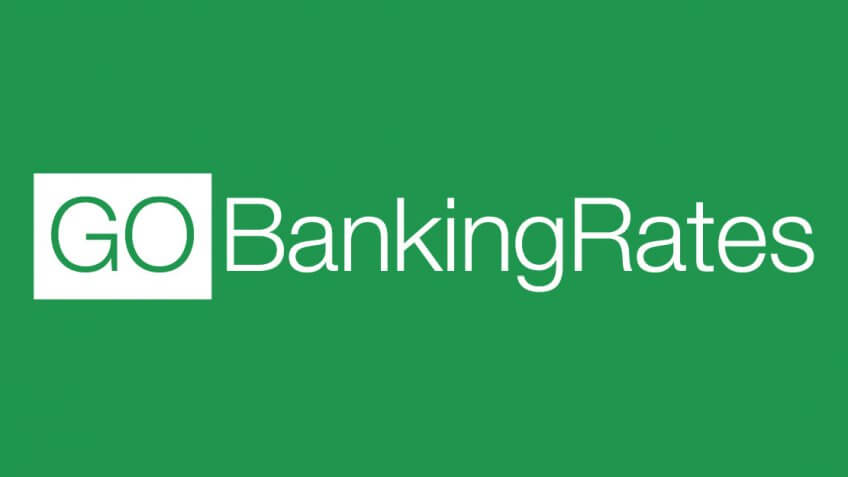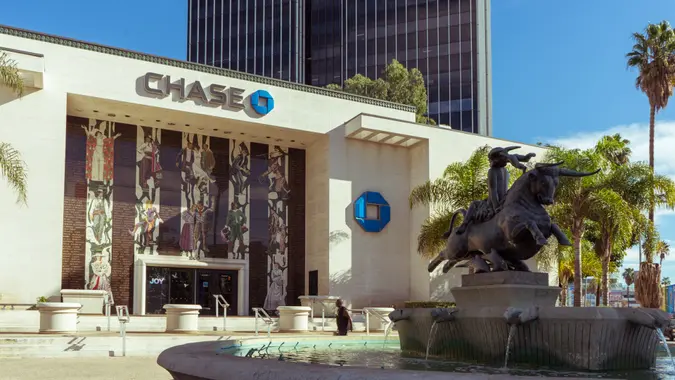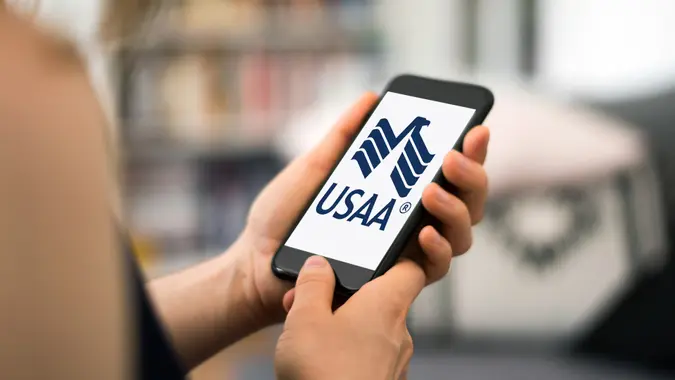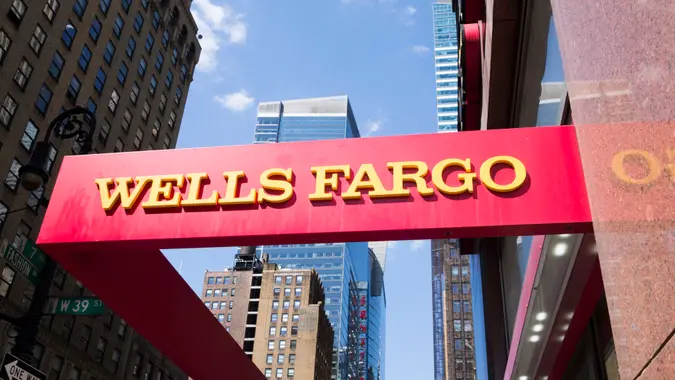Is a Money Market Account Safe? Understanding the Risks and Benefits

Commitment to Our Readers
GOBankingRates' editorial team is committed to bringing you unbiased reviews and information. We use data-driven methodologies to evaluate financial products and services - our reviews and ratings are not influenced by advertisers. You can read more about our editorial guidelines and our products and services review methodology.

20 Years
Helping You Live Richer

Reviewed
by Experts

Trusted by
Millions of Readers
Money market accounts (MMAs) are a safe choice for growing your savings because they’re typically insured by the FDIC or NCUA. Still, no financial account is entirely risk-free, so it’s important to understand the protections and limitations involved.
Key features of MMAs include:
- FDIC or NCUA Insurance: Accounts held at FDIC-insured banks, while credit union accounts are covered by the NCUA, both up to $250,000 per account holder.
- Interest Earnings: MMAs generally have better rates than standard savings accounts but lower than certificates of deposit (CDs).
- Liquidity: While MMAs allow easy access to funds, they often limit withdrawals per month (usually six under Regulation D).
Are Money Market Accounts Safe?
Money market accounts are among the safest places to store cash, as long as they are with an FDIC- or NCUA-insured institution.
Here’s what makes MMAs safe:
- FDIC/NCUA Insurance – Protects deposits up to $250,000 per account holder, meaning your money’s secure even if your bank fails.
- Low risk – Unlike investments, MMAs don’t fluctuate with the stock market.
- Bank/Credit Union Stability – Choosing a reputable institution reduces the risk of disruptions to account access.
Tip: If you have more than $250,000 to deposit, consider spreading funds across multiple insured accounts to stay within coverage limits.
Risks of a Money Market Account
While MMAs are considered safe, there are a few potential risks to be aware of:
1. Inflation Risk
- The interest rate on MMAs might not keep up with inflation, impacting your buying power over time if left unchecked.
2. Withdrawal Limits
- MMAs are subject to Regulation D, limiting withdrawals or transfers to six per month. Exceeding these limits leads to fees or account restrictions.
3. Minimum Balance Requirements
- Some banks require high minimum balances and failing to maintain them can result in monthly fees.
4. Interest Rate Changes
- Unlike CDs, MMA rates are variable, meaning earnings fluctuate depending on market conditions.
| Risk | Potential Impact |
|---|---|
| Inflation Risk | Earnings might not outpace rising costs |
| Withdrawal Limits | Exceeding limits may result in fees |
| Minimum Balance Fees | Falling below the minimum balance may incur charges |
| Variable Interest Rates | Interest earnings may decrease over time |
Money Market Accounts vs. Money Market Funds: Understanding the Difference
A money market account (MMA) is a bank deposit account, while a money market fund (MMF) is an investment product.
Here’s a quick comparison:
| Feature | Money Market Account | Money Market Fund |
|---|---|---|
| FDIC/NCUA Insurance | Yes | No |
| Interest Rate Stability | More stable | Varies with market |
| Risk Level | Low | Moderate |
| Liquidity | Limited withdrawals | Easy access but may have restrictions |
Tip: If safety is your priority, stick with an FDIC– or NCUA-insured money market account rather than a money market fund.
How to Ensure Your Money Market Account Is Safe
To maximize safety, follow these tips:
- Verify FDIC/NCUA Insurance – Confirm that your institution is insured before opening an account.
- Stay Under Insurance Limits – Keep deposits under $250,000 per account holder per institution to ensure full coverage.
- Monitor Account Fees – Be aware of minimum balance requirements and potential penalties.
- Choose a Reputable Institution – Opt for well-established banks or credit unions with a strong financial track record.
How Money Market Accounts Compare to Other Savings Options in Safety
If you’re looking to keep your money safe while investing, you have some options to consider. Here’s a breakdown of the safety options for key metrics of money market accounts, your standard bank’s savings account and CDs:
| Feature | Money Market Account | Savings Account | CDs (Certificates of Deposit) |
|---|---|---|---|
| FDIC/NCUA Insured? | Yes | Yes | Yes |
| Interest Rate | Moderate | Low | Fixed, often higher |
| Liquidity | Limited withdrawals | Unlimited | Locked in for a term |
| Best For | Higher interest with access to funds | Everyday savings | Long-term savings with guaranteed rates |
Tip: If you want higher interest but don’t need frequent withdrawals, consider a CD instead of an MMA.
Benefits of Money Market Accounts Beyond Safety
Even with minor risks, MMAs offer strong benefits:
- Higher Interest Rates than traditional savings accounts.
- Limited Check-Writing and Debit Access for convenience.
- Safe Haven for Emergency Funds with liquidity and security.
If you need a place to park your cash while still earning some interest, an MMA is a great option.
Common Misconceptions About Money Market Account Safety
Investing can be complicated, so it’s easy to stumble into common misconceptions. Thankfully, we’re here to set the record straight and bust those myths.
Here are some of the most common myths about money market account safety:
Misconception: Money market accounts and money market funds are the sameReality: MMAs are bank accounts, while MMFs are investments that can lose value.
Misconception: If my bank fails, I’ll lose my moneyReality: If your account is within FDIC/NCUA limits, your money is safe even if the bank fails.
Misconception: Money market accounts always have the highest interest ratesReality: MMA rates are competitive, but high-yield savings accounts and CDs may offer better returns.
Money market accounts are a safe place to store cash with minimal risk. While they don’t offer the highest returns, they provide a balance of security, liquidity, and interest earnings. By staying within insurance limits and understanding their risks, you can confidently use an MMA as part of your financial strategy.
Check with your bank or credit union to find the best FDIC- or NCUA-insured money market account today!
FAQs About Money Market Accounts
Here are the answers to some of the most frequently asked questions regarding money market accounts.- Are money market accounts FDIC ensured?
- Yes, if they are held at an FDIC-insured bank or an NCUA-insured credit union.
- What happens if my bank account fails while I have a money market account?
- As long as your balance is within the $250,000 insurance limit, the FDIC or NCUA will protect your deposit.
- Is there a risk of losing money in a money market account?
- No, MMAs don’t lose value like investments, but fees and inflation can reduce overall returns.
- How are money market accounts safer than money market funds?
- MMAs are insured and stable, while money market funds are investments that can fluctuate.
- Can I keep more than $250,000 safe in a money market account?
- Yes, by spreading deposits across multiple insured banks or credit unions.
Sarah Sharkey and Joe Evans contributed to the reporting for this article.
Our in-house research team and on-site financial experts work together to create content that’s accurate, impartial, and up to date. We fact-check every single statistic, quote and fact using trusted primary resources to make sure the information we provide is correct. You can learn more about GOBankingRates’ processes and standards in our editorial policy.
- Consumer Financial Protection Bureau. 2023. "What is a money market account?"
- U.S. Securities and Exchange Commission "Regulation D offerings"
- International Monetary Fund "Inflation: Prices on the Rise"
- Federal Deposit Insurance Corporation "What amount is covered?"
 Written by
Written by  Edited by
Edited by 



